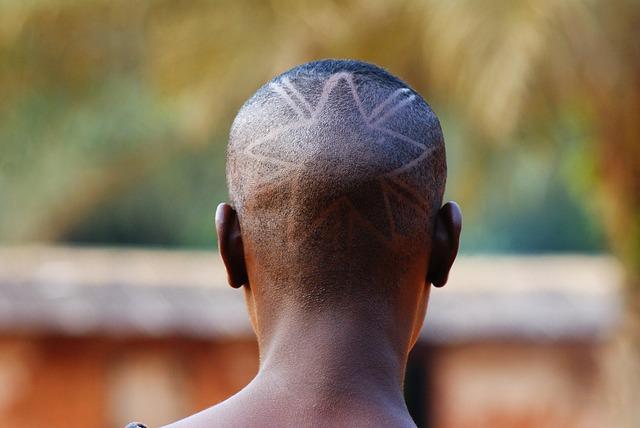In recent years, Cameroon has garnered international attention for its escalating political tensions and human rights concerns, particularly in the Anglophone regions where a protracted crisis has unfolded. According to a report by Amnesty International, the situation has reached a critical juncture, with over a hundred detainees—including members of opposition parties—held in confinement for exercising their right to free expression.This troubling trend reflects broader issues of political repression and the stifling of dissent within the country. As voices advocating for reform and autonomy are silenced behind bars,the implications for democracy and human rights in Cameroon are profound and alarming.This article delves into the experiences of those affected, the broader socio-political landscape, and the urgent calls for justice and accountability that resonate both locally and globally.
The Human Rights Crisis in Cameroon’s Anglophone Regions
The ongoing human rights crisis in Cameroon’s Anglophone regions has reached alarming levels, particularly with over a hundred individuals detained simply for exercising their right to free expression. Many of these detainees include activists, journalists, and members of opposition parties who have voiced concerns about government policies and the marginalization of English-speaking communities. According to reports from Amnesty International, the arrests are often arbitrary and lack due process, highlighting a troubling trend of suppressing dissent. The situation exacerbates existing tensions between the Anglophone regions and the central government, contributing to broader issues of inequality and systemic injustice.
The consequences of these detentions extend beyond the individuals affected; they resonate throughout the fabric of society.Families are torn apart, communities are silenced, and critical dialog about governance and depiction is stifled. Key points of concern include:
- Unlawful arrests: Many activists are apprehended without a warrant or formal charges.
- Torture and ill-treatment: Reports indicate that some detainees have faced inhumane treatment while in custody.
- Limited access to legal support: Detainees frequently struggle to secure representation or communicate with the outside world.
As these violations persist, many international human rights organizations are calling for urgent action.they demand the release of political prisoners and an end to the crackdown on freedom of speech, urging the Cameroonian government to honor its obligations under international law.
Opposition Suppression: The Toll on Civil Liberties and Democracy
The ongoing crackdown on dissent in Cameroon has increasingly stifled voices that seek to challenge the status quo. More than a hundred individuals from the Anglophone regions, along with members of opposition parties, find themselves imprisoned solely for exercising their essential rights to free speech and assembly. In a climate where the government perceives critique as a threat, the repercussions are severe, encompassing arbitrary arrests and extended periods of detention without trial.Many detainees report inadequate access to legal representation and healthcare,highlighting the dire state of civil liberties within the nation.
This situation raises critical concerns about the erosion of democratic principles and human rights. The toll is evident through various implications, such as:
- Suppression of Political Discourse: the fear of retribution stifles political debate and reduces public participation.
- Human Rights Violations: Detainees often face mistreatment, leading to longstanding psychological and physical trauma.
- Legal Ambiguity: Many are held without clear charges, undermining the rule of law.
As these numerous violations continue unabated, the international community is called upon to take a firm stand in advocating for a return to democratic norms and the protection of human rights in Cameroon.
Amnesty International’s call to Action: The Plight of Detainees
Amnesty International has urgently raised its voice against the injustices faced by over one hundred individuals detained in Cameroon solely for expressing their views.Among these detainees are members of the Anglophone community and opposition politicians who have become victims of political repression.Eyewitness accounts highlight the inhumane conditions in wich these individuals are held, raising alarming concerns about the treatment meted out to them. Key issues include:
- Severe overcrowding and unsanitary conditions in detention facilities
- Lack of access to legal representation and fair trials
- Reports of torture and mistreatment
- Restriction of interaction with family members and the outside world
In the eyes of Amnesty International, these circumstances exemplify a systematic crackdown on dissent that not only undermines the principles of freedom of expression but also poses significant threats to civil liberties in the region. The organization calls for immediate action to secure the release of all individuals unjustly detained.to galvanize support for these detainees, collective efforts are critical. Interested communities and activists can take part in campaigns aimed at:
- Raising awareness through social media platforms
- Signing petitions and sending letters to authorities
- Organizing peaceful demonstrations
Every action taken in solidarity with the detainees can amplify their voices and stand against oppression. Amnesty International encourages individuals to mobilize and advocate for the fundamental rights of those who dare to speak out against injustices.
urgent Recommendations for the Cameroonian Government
In light of the alarming situation regarding the incarceration of over a hundred individuals from the Anglophone regions and opposition parties, decisive measures are required from the Cameroonian government. The continuous detention of these individuals raises serious concerns about human rights violations and the right to free expression. It is indeed imperative for the government to:
- Ensure immediate release of all political detainees and those unjustly imprisoned for their opinions.
- Uphold freedom of speech by dismantling oppressive laws that stifle dissent and criticism.
- Engage in transparent dialogues with stakeholders from the Anglophone regions to address the underlying issues fueling unrest.
The need for reform is urgent. A extensive assessment of the legal frameworks governing political expression must be undertaken to align them with international human rights standards. Moreover,accountability mechanisms should be established to investigate and address the arbitrary arrests and abuses suffered by citizens. This could include:
| Action Item | Responsible Body |
|---|---|
| Revise repressive laws | Ministry of justice |
| Conduct public consultations | National Dialogue Commission |
| Facilitate access to legal aid | Bar Association |
International Response: Solidarity and Support for Anglophone Activists
the plight of detainees in Cameroon, particularly those from the Anglophone regions and opposition parties, has sparked an outpouring of international solidarity and support. Activists,human rights organizations,and concerned governments have rallied to highlight the unjust imprisonment of over a hundred individuals who dared to voice their dissent. The situation has prompted a broad coalition of support, emphasizing the critical need for the recognition of fundamental human rights, including freedoms of expression and assembly. Key elements of this global response include:
- Advocacy Campaigns: Numerous NGOs are actively campaigning for the immediate release of detainees, leveraging social media platforms to amplify their voices.
- Calls for International Pressure: Advocacy groups are urging governments to impose sanctions on key figures in the Cameroonian government responsible for human rights abuses.
- Diplomatic Engagement: Diplomatic channels are being utilized to engage with Cameroon on the importance of human rights, with several nations discussing the issue in forums such as the United Nations.
In addition to grassroots movements, several prominent political figures have voiced their concerns regarding the treatment of Anglophone activists. The United Nations and the African Union have both issued statements condemning the crackdowns and emphasizing the necessity for dialogue between the Cameroonian government and its disgruntled populations. To better understand the scale of international response, the following table outlines support mechanisms being implemented:
| Support Mechanism | Description |
|---|---|
| public Protests | Demonstrations held in various cities worldwide to draw attention to the detainees’ plight. |
| Petitions | Global petitions collecting signatures to demand justice and the release of all political prisoners. |
| Media Coverage | Increasing media spotlight aimed at documenting human rights violations occurring in Cameroon. |
The Role of Media in Highlighting Human Rights Violations in Cameroon
The media plays a crucial role in uncovering and disseminating facts about human rights violations, particularly in a country like Cameroon, where dissent is often met with severe repression. Investigative journalism and reporting have been instrumental in bringing to light the plight of detainees from Anglophone regions and opposition parties, shining a spotlight on their struggles against state-sponsored violence and arbitrary incarceration. By documenting their experiences and the broader implications for freedom of expression,the media serves not only as a platform for marginalized voices but also holds the state accountable for its actions.
Moreover, the impact of social media cannot be underestimated in the quest for justice and clarity. platforms like Twitter and Facebook allow activists and citizens to share real-time updates about ongoing protests and legal battles, galvanizing international support. This digital activism can prompt global organizations, such as amnesty International, to take notice and amplify calls for action.Through the power of collective storytelling, the media fosters awareness and empathy, increasing pressure on governmental bodies to address and rectify human rights abuses systematically. Below is a table summarizing key factors contributing to this media effectiveness:
| Factor | Impact |
|---|---|
| Access to Information | Enables journalists to report accurately on violations. |
| International Collaboration | Increases visibility through partnerships with global media. |
| Creative Storytelling | Engages the audience and promotes empathy. |
| Social Media Amplification | Facilitates rapid dissemination and mobilization of support. |
In Retrospect
the situation in Cameroon underscores the ongoing struggles for freedom of expression and human rights in the country. With over a hundred detainees from Anglophone regions and opposition parties still behind bars, the call for justice and accountability becomes ever more urgent. Amnesty International’s findings highlight the need for both national and international scrutiny to address the systemic repression of dissenting voices. As the international community continues to monitor the developments in Cameroon, it is crucial for advocates of human rights to stand in solidarity with those unjustly imprisoned. The fight for freedom and justice is far from over, and the resilience of the Cameroonian people in the face of adversity remains a testament to the enduring pursuit of democracy and human rights.
